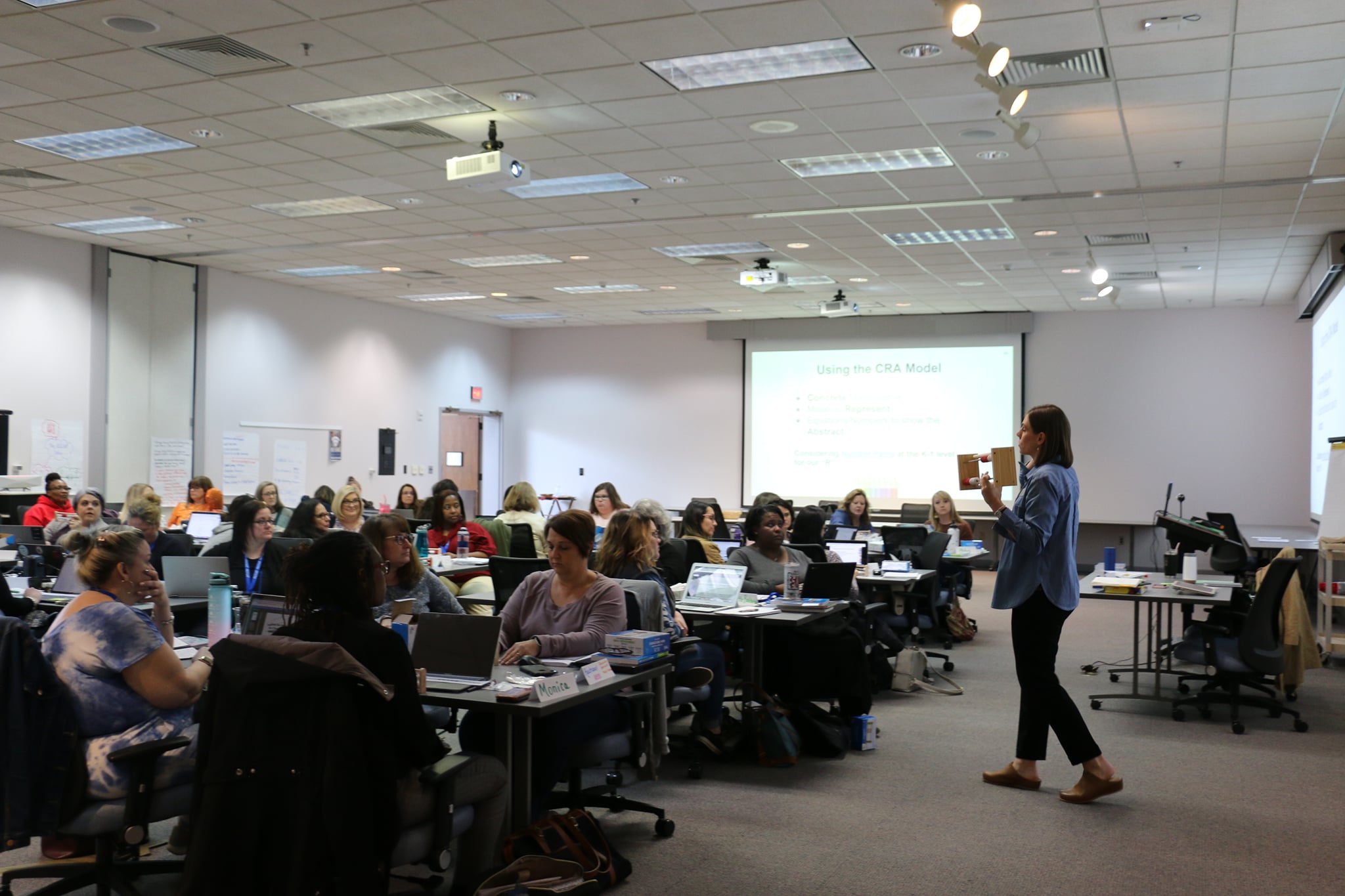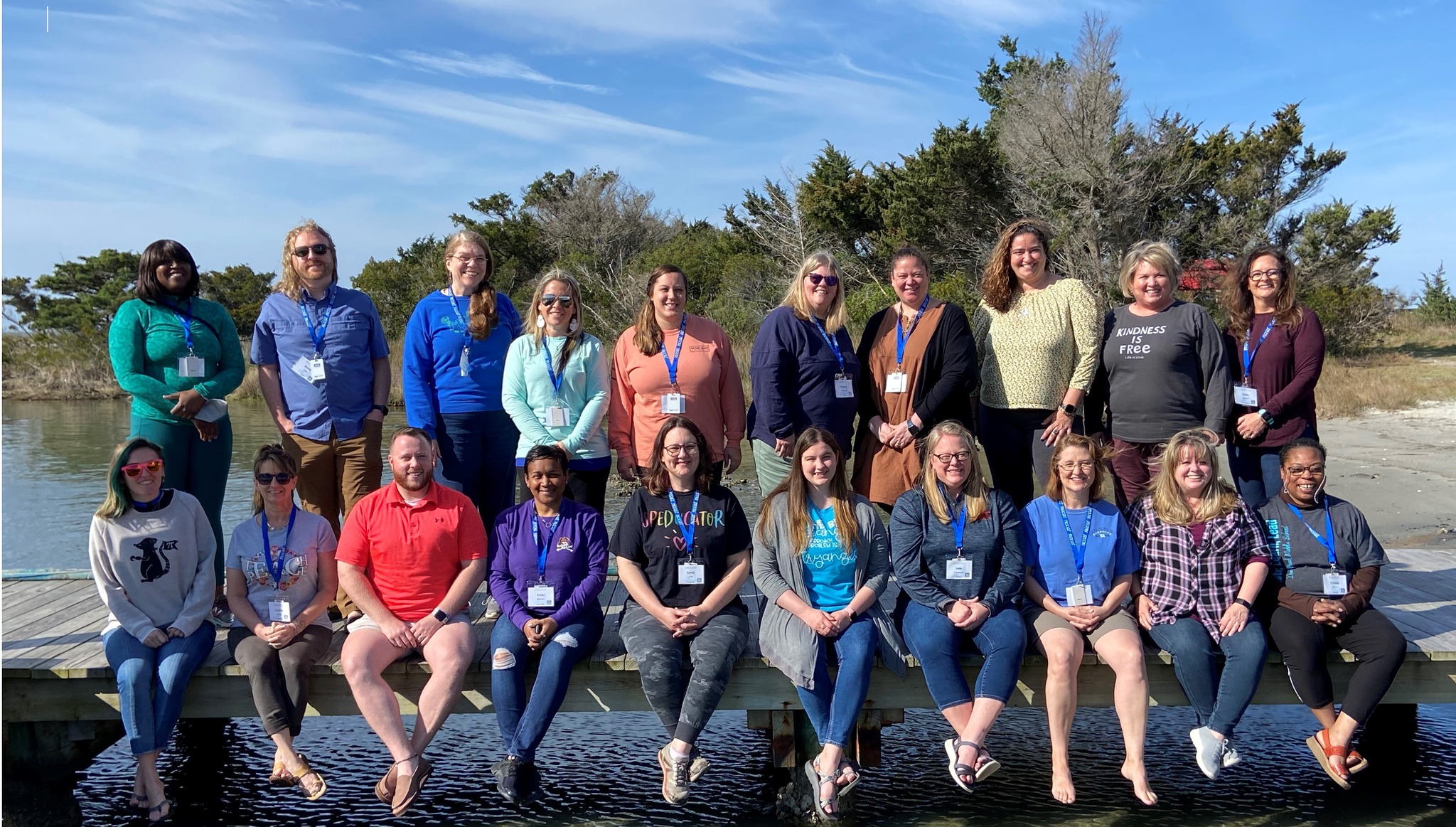Open to teachers in their first, second, or third year of teaching, this program supports motivated beginning teachers by strengthening their knowledge base and classroom expertise.
16210 Building Relationships: Learning and The BRAIN !! - Ocracoke
When teachers know and begin to understand how the brain learns, they can better serve their students, thus increasing positive behavior and academic performance. Understanding the science behind how we are hard wired to learn is empowering for educators. There is a strong relationship between the brain, SEL, and learning. The frontal lobe houses the structures where most brain activity occurs when people care about each other, trust each other, and want to be friends. It is also home to our executive control function, where we make decisions, process information, and learn. Through a combination of interactive lecture, practical activities, and meaningful movement, you will leave with the skills, understanding, and knowledge needed to become an awesome brain-based educator. This course is for grades K-12.
NCCAT BOARD OF TRUSTEES COMMITTEE MEETING SCHEDULED FOR FRIDAY, APRIL 15th, 2022
The North Carolina Center of Advancement of Teaching (NCCAT) Board of Trustees will meet virtually on Friday, April 15th, 2022, at 4:00pm. This is a special called meeting for the Ocracoke Long Range Committee to discuss potential vendors for Architectural services at NCCAT’s campus in Ocracoke, NC.
16193 Facilitating Small Group Instruction in the Math Classroom - Ocracoke
Opportunities to work with students in small groups creates new math understandings and builds fluency. Join this program to focus on essential components of small group instruction including facilitating math running records and strategies to develop conceptual understanding and fluency. This comprehensive program will explore workshop models and include how to create math playlists and choice boards so students can make the most of their time in the workshop block. Time will be included for teachers to collaborate and develop lessons for their classrooms. This program is intended for teachers and instructional coaches in grades K-5.
16107 Making the Shift from Guided Reading to Small Group Instruction - Virtual
Like guided reading, small group instruction is a teacher-driven model. The teacher is still working with a small group of pupils who have similar instructional needs. This session will explore strategies for small group instruction based on skills to help pupils become proficient readers. Join us from 4:00-5:00 pm virtually as we explore making the shift from guided reading to small group instruction in your elementary classroom.
Union County teacher receives NCCAT Honored Educator Scholarship award
Congratulations to Shelley Gordon (left) a teacher in Union County Public Schools. She received the NCCAT Honored Educator Mary D. McDuffie Scholarship. Great job! This scholarship was established in honor of the late Dr. Mary McDuffie who began her 35-yearlong career in education as a history teacher.
Hello Summer at NCCAT! Summer Registration Open Now
CULLOWHEE – Summer registration is open at The North Carolina Center for the Advancement of Teaching, a recognized national leader in professional development.
For more on Summer programs visit –
June - https://bit.ly/3DFjGSk
July - https://bit.ly/35I1qLr
August - https://bit.ly/3r3y95x
September - https://bit.ly/3Kbus5i
Math professional development at NCCAT Cullowhee

NCCAT has been holding a four-session Math Badge series exploring best practices for K-5 math instruction. The instructional components shared in this series lead to strong classroom structures that embrace mathematical thinking and honor students’ instructional needs. Participants could attend all four and earn an NCCAT math badge or attend individual sessions to deepen their own understanding of the necessities of effective math instruction. Today's badge sessions were - "Interventions and Small Group Instruction" and "Authentic Problem-Solving Strategies."
Tasks, Tools, and Talk to Support Math Literacy at NCCAT Ocracoke

Appreciate these teachers joining us for "Tasks, Tools, and Talk to Support Math Literacy" at NCCAT Ocracoke. Participants learned how to facilitate activities that promote a deeper understanding of the mathematical practices that are the foundation of the 21st-century classroom. They discovered engaging tasks that involve collaboration and problem-solving. It was a week of exploring creative classroom-friendly activities that build mathematical fluency.
Gathering of Holocaust Educators held at NCCAT
Teachers from around North Carolina for joining us for the "Gathering of Holocaust Educators." NCCAT’s Holocaust Education Program works to promote Holocaust education in North Carolina public schools. It is important to continue our efforts to promote student understanding of the ways in which our individual and collective actions shape the direction of the present and the world of the future.



